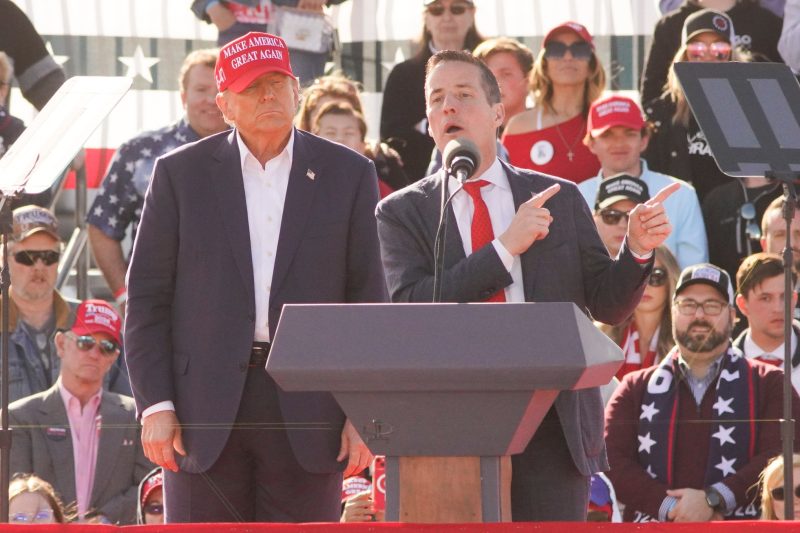In the constantly evolving landscape of American politics, Senate Republican candidates find themselves facing a significant challenge as they trail behind former President Donald Trump. The emergence of Trump as a dominant figure within the Republican Party has upended traditional political dynamics, calling into question the future of the GOP and the strategies of its candidates.
One key factor contributing to the struggles of Senate Republican candidates is the enduring influence of Donald Trump within the party. His unconventional and polarizing leadership style has galvanized a dedicated base of supporters who remain deeply loyal to his America First agenda. This loyalty has translated into substantial influence over primary races, with Trump’s endorsements carrying significant weight among Republican voters. As a result, Senate candidates who fail to align themselves closely with Trump risk alienating a crucial segment of the party’s base.
Additionally, the shadow of Trump’s presidency continues to loom large over the Republican Party, shaping both its policy priorities and its messaging. Candidates who seek to distance themselves from Trump risk being labeled as disloyal or out of touch with the party’s base, further complicating their electoral prospects. This dynamic highlights the challenges facing Senate candidates who must navigate the complex terrain of a party still in the grip of Trump’s influence.
Furthermore, the ongoing internal divisions within the Republican Party pose a significant obstacle for Senate candidates seeking to build unified support. The rift between establishment Republicans and Trump loyalists has created a fractured landscape in which candidates must carefully navigate competing interests and allegiances. This internal discord not only complicates the primary process but also has the potential to weaken the party’s overall electoral prospects in a general election.
In light of these challenges, Senate Republican candidates face a critical decision point as they seek to balance the demands of a rapidly shifting political landscape. The need to appeal to both traditional Republican voters and the pro-Trump faction presents a delicate balancing act that requires strategic maneuvering and careful messaging. Failure to effectively navigate these dynamics may result in diminished support from key segments of the Republican base, ultimately jeopardizing candidates’ chances of success.
As the 2022 midterm elections approach, Senate Republican candidates will need to confront these challenges head-on if they hope to secure victory. The legacy of Donald Trump’s presidency continues to exert a powerful influence over the party, shaping its direction and priorities in ways that will undoubtedly impact candidates at every level. How Senate candidates navigate this new political terrain will ultimately determine the future trajectory of the Republican Party and its electoral fortunes.

